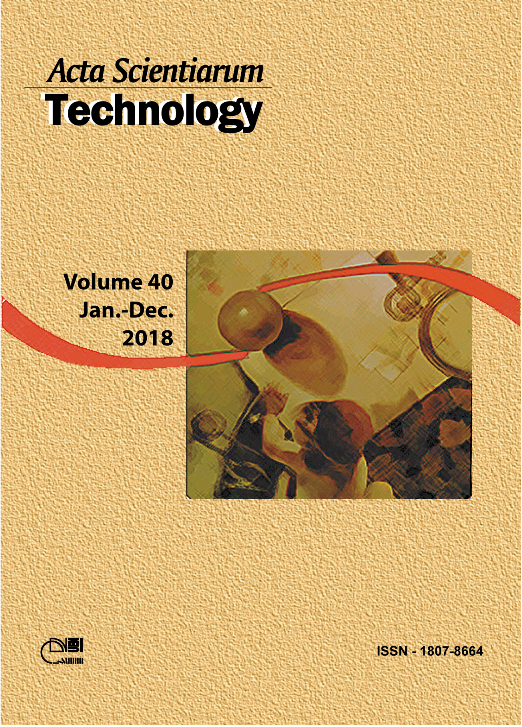<b>Treatment of organic solid waste generated at agricultural research corporation via composting under natural and controlled conditions
DOI:
https://doi.org/10.4025/actascitechnol.v40i1.29643Keywords:
organic residues from the recycling program, soybeans, wheat straw, soybean straw, pruning trees.Abstract
The study of composting technique becomes relevant to management of organic waste generated in an undertaking agricultural research. Therefore, this paper aimed to evaluate the efficiency of stabilization of organic matter in two composting systems: controlled (plowings and irrigations fortnightly) and natural. It has been tested two piles (controlled and natural) during 120 days in four treatments: soy straw (T1), wheat straw (T2), tree pruning (T3), mixture of soy and wheat straw and tree pruning (T4) with organic residues from the recycling program + soybeans. There was monitoring of temperature, moisture, pH, electrical conductivity (EC), C, N, C/N ratio and reduction of mass and volume. In the controlled treatments, the thermophilic phase was lower, the moisture was in the ideal ratio for the process (with lower values in the natural treatments), and there was a decrease of 3-4 times of the values of EC and the higher reductions of mass and volume. In all treatments, the values of pH were neutral and the C/N ratio declined 37-50%, assuming final values of matured composts. It has been concluded that regardless of mixtures of waste, the controlled treatments, in the period of 120 days, were more efficient in stabilize the organic material.
Â
Downloads
Downloads
Published
How to Cite
Issue
Section
License
DECLARATION OF ORIGINALITY AND COPYRIGHTS
I Declare that current article is original and has not been submitted for publication, in part or in whole, to any other national or international journal.
The copyrights belong exclusively to the authors. Published content is licensed under Creative Commons Attribution 4.0 (CC BY 4.0) guidelines, which allows sharing (copy and distribution of the material in any medium or format) and adaptation (remix, transform, and build upon the material) for any purpose, even commercially, under the terms of attribution.
Read this link for further information on how to use CC BY 4.0 properly.















8.png)




